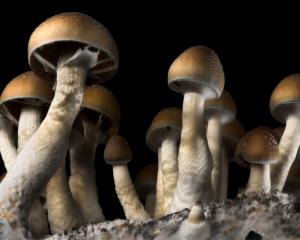

I am in the "winterless north", Kerikeri, at the moment and have just spent the morning meeting a super-plant, yacon, which we will be using in a new digestive health product. The yacon in the paddock is about to be harvested, if it would stop raining. The tuber, which looks like a white kumara, can be cooked and eaten whole, or turned into a molasses-like syrup. Yacon originates from South America, with the name meaning "water root" in the Inca language.
The main reason I am so excited to see yacon in its habitat is because of its amazing prebiotic properties. Yacon stores its sugar in the form of fructooligosaccharides (FOS) which our body can’t digest, but our gut bacteria can. These types of saccharides benefit the growth of our "good" bacteria and inhibit the growth of our "bad" bacteria. Clinical trials have shown that yacon FOS can also reduce appetite and help people with weight loss - I will keep you personally informed on that one.
The late Dr Robert Welch, a New Zealand biochemist, was instrumental in much of the research done on the plant in New Zealand and in its commercialisation.
The potential for yacon is exciting and as I squelched through the paddock, I couldn’t help pondering what else we could be growing and developing into products. On this visit I had also gone to a farmers’ market and found a stall where a woman was selling Kawakawa tonic. Kawakawa is a native tree, prevalent in the Far North. The stall proprietor had based the tonic on traditional Maori medicine - Rongoa. She had been diagnosed with stage four cancer and was finding chemotherapy to be brutal for her digestive health, so she looked at what else she could do. She had to teach herself to make the tonic, as even though her grandfather used to practice Rongoa he didn’t pass much on to her.
Last century, the Government stopped people using traditional Maori healing practices - this act has since been overturned. Her grandfather was of a generation who were taught to hide their Maoridom, his hands were scarred from being caned for speaking te reo in school.
Renewed interest in the practice of Rongoa and other traditional medicines is inspiring and increasingly backed with scientific understanding - the lignans, phenylpropanoids and terpenoids in kawakawa are being studied for their impact on digestion and inflammation by New Zealand scientists.
New Zealand’s Natural Health Products Act was established in 1981 and is well overdue for review when compared with other countries’ equivalent Acts. The World Health Organisation (WHO) have stated that longstanding traditional therapeutics are an important, yet often underestimated health resource with wide applications, including in the prevention and management of lifestyle-related chronic diseases, and in meeting the health needs of ageing populations.
Dr Sandra Clair, a scientist and founder of Artemis, recently posted on LinkedIn: "When will New Zealand (a signatory to the WHO Traditional Medicine Strategy 2014-23) leave its colonial bias behind and finally take the regulatory step to integrate effective and safe traditional medicines alongside their younger cousins - synthetic drugs?"
We are in a unique position in New Zealand. We have vast tracts of land that could be used to produce some of the best health products and nutritive-value food in the world - our equivalent of the slow food movement.
In contemplating this, it is worth acknowledging the Maori whakatauki: "Kia whakatomuri te haere whakamua" - "I walk backwards into the future with my eyes fixed on my past."
- Anna Campbell is a co-founder of Zestt Wellness, a nutraceutical company. She also holds various directorships.












